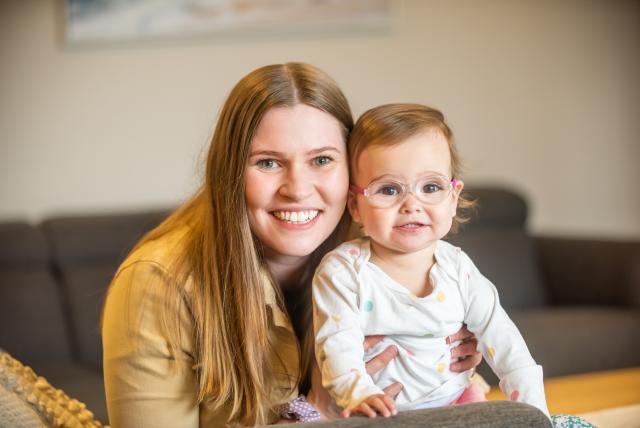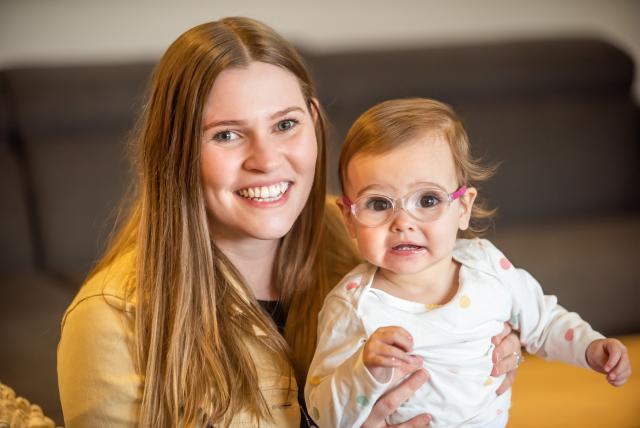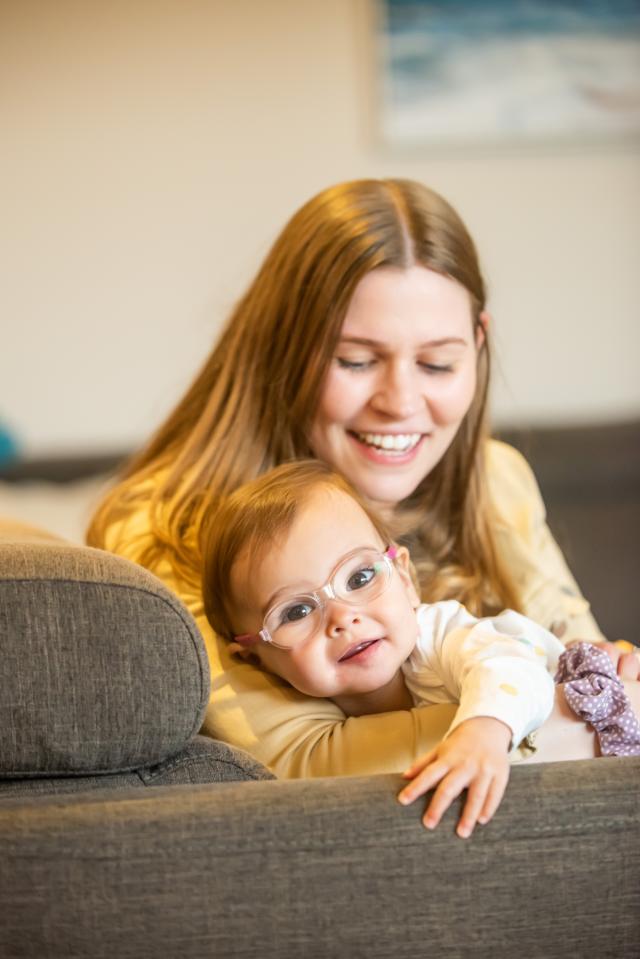By Casey Neill
Berwick mum Emma Mills noticed her baby daughter Imogen was frequently crossing her eyes.
“It wouldn’t happen all the time, it was so intermittent,” she said.
“It didn’t sit right with me – trust your mum instincts.”
Emma took Immy went to a GP and was told nothing could be done until she was over 12 months old anyway, so wait it out and don’t worry about it.
“I think I got pigeonholed into a pedantic first-time mum,” she said.
She relayed her experience at her next Maternal Child Health Nurse appointment.
“Immy’s eyes were going crossed in that appointment, which was good. The GP didn’t get to see it,” she said.
The nurse suggested seeing an optometrist.
“Immediately they recognised that she had vision problems,” Emma said.
“All she was doing was trying her hardest to see us, and she was crossing her eyes.
“She just excelled. It immediately helped her have all this confidence.
“Stuff that was really really hard for us initially – like eating and getting her to engage with us – as soon as she got her glasses, all of that stuff got so much easier.
“I felt awful. I think I felt even more guilty because I’d listened to the GP.
“If I’d just gone with my gut she could have had glasses sooner.”
Emma fell pregnant with Immy quite quickly.
“I didn’t feel all that prepared for it,” she said.
“Now that Immy’s in my life I couldn’t imagine her not being there.
“Becoming a mum, it’s been a big shift but it’s the most rewarding rollercoaster you’ve ever been on.”
She did not love pregnancy.
“People put it on this little pedestal. I wasn’t a good pregnant person,” she said.
“I didn’t bond with it like everyone else does.
“I’d go through it again because of the result, but I didn’t love that my body wasn’t mine.
“I had perinatal anxiety and depression throughout the pregnancy.”
Emma got a pregnancy mental health plan and accessed St John of God’s Raphael Services.
“I felt very disconnected the entire pregnancy,” she said.
“It was a dark time, a really dark time in what’s meant to be a great time in your life.”
Having anxiety and depression during her pregnancy made Emma susceptible to postnatal depression as well.
She was on alert for it and managed the symptoms as she gained confidence in her parenting.
“I very much doubted myself and my ability to be a mum and she needed me,” she said.
“I leant on Darcy a lot.
“Right before I gave birth I cut my hand pretty badly with a bread knife.
“I had to have emergency nerve surgery on my hand.
“A week later I went into labour at 37 and 5.
“I gave birth with a full-on cast on my hand.”
So she was operating one-handed for the first month of Immy’s life.
“It made me feel inadequate,” she said.
“I couldn’t do nappy changes.
“I had a pretty traumatic birth in the end, that ended in an emergency c-section.”
Immy was facing the wrong way and was not responding to attempts to turn her.
“Processing that trauma is so important, but you don’t get the chance because you’ve suddenly got this newborn that relies on you for everything,” Emma said.
“I don’t know that I ever fully dealt with it.
“My breastfeeding journey wasn’t picture-perfect either.
“My milk was very late to come in, so Immy was on formula from the get-go.”
Emma breastfed once her milk did arrive, but it was a battle with a little, tired baby.
“She didn’t have that strength and energy to suck,” she said.
“I drowned her with my let-down because she wasn’t strong enough to take it.
“Then she had a lot of wind problems.
“I ended up switching to expressing and that really helped my anxiety and depression.
“It was a time suck, but I could see exactly how much she was getting. She was still getting breastmilk and all those benefits.”
At 20 minutes per pump and five pumps per day, Emma spent about 250 hours on the task – and that doesn’t include giving or cleaning the bottles.
“Expressing mums need some props,” she said.











